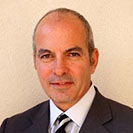I ran across a nearly perfect example of mis-reading the market trends over the weekend. A major financial advisory blog published an article in praise of financial planners taking on tax preparation work, and highlighted the year spent by an advisor obtaining his EA and offering tax prep as “a core part of the business’ service offering.”
Here’s the closer: “The key point is that, offering tax preparation can be seen as a way for solo advisors to use their existing tools and expertise to enhance the year-round value they provide.”
There are existentially important lessons for the tax professional in this story. The first and most obvious takeaway, at least to me, is that advisors and planners are looking to do more advising and planning, and using tax prep as a hook. The alternative explanation can only be that they believe a year’s study and accreditation, and the potential liabilities, not to mention the intense pressure of April and October deadlines, is worth it to get an incremental $500 from their existing clients.
What if we inverted this and looked at it from a different perspective, the perspective of the tax pro? You already have what that financial advisor is trying to get…tax preparation clients. Are you using them to swim upstream into the more lucrative and valuable waters of wealth management and asset protection? Or are you, in one of life’s great ironies, referring those clients to financial planners and advisors?
Whatever your take on this story, you must be aware that your clients spend orders of magnitude more money with other financial professionals than they do with you. In our new book, Winning the Wallet Share War, we do the math for you. If you haven’t read it, I strongly suggest you do.
Can you honestly say that you loved every minute of this past tax season? Let’s face it: a 100-hour work week can make a misanthrope out of Santa Claus. Tax season is always a weird amalgam of enjoyable and rewarding time spent with your favorite clients, and the grueling and exhausting slog of endless form-filling for grumpy customers that feels like the Bataan Death March.
It’s just the nature of the tax preparation business that some clients are far more valuable than others. When I ask tax pros what they struggle with in their businesses, I virtually always hear that they would love to fire a bunch of their clients. They don’t want more clients, they want better ones. If that sounds like you, I hope this article is valuable for you, and I can promise you this: tax pros just like you are using these techniques to transform their businesses into more productive, profitable, and valuable concerns.
Let’s start with some essential premises. What, exactly, is a better client? I suggest that a better client isn’t just someone you enjoy your time with, but it’s objectively definable. A better client does three incredibly valuable things for you: it provides you much higher revenues, which I call wallet share; it has a far greater lifetime value to you, which is a measure of loyalty plus wallet share, and they refer their friends to you.
The impact of having a better clientele will be good to you in many ways. Your firm revenues will rise. The diversity and regularity of your revenues will streamline your business. That same revenue diversity will protect you from the commodification of your tax prep business. It will allow you to escape the dollars-for-hours volume trap, replacing it with the vastly more valuable value-for-dollars model, and it has the very real potential to multiply the valuation of your business by several times.
The following ten tips can be done by just about anyone, and they don’t require a massive resource allocation or years of effort. Most of all, they absolutely do not require you to develop sales skills. In fact, I’ll make that a bonus eleventh tip: never try to be a salesperson; it’s the last thing you should do.
CPAs Should Set Goals For Existing Clients
Your goal should not be acquiring more tax prep clients; your goal should be to upgrade the ones you already have. Scratch out “attract” and substitute “develop.” Surveys consistently show that tax pros are the most trusted among all financial professionals. You are trusted at the level of a medical doctor or a scientist. You know this is true, and it explains why clients ask you for your advice about all kinds of things that don’t show up on a 1040. Great goals to strive for include raising your revenue per client and offering strategic tax planning services.
Tax Professionals Should Embrace Their Natural Fiduciary
You have an incredibly valuable competitive advantage over stock brokers, bankers, and insurance agents. You always and only act in your client’s best interests. Play to this strength by educating your clients about what a fiduciary actually is and does, and contrast it with the motivations and behaviors of salespeople. I’m confident that you’ll find a very receptive audience that’s delighted to be treated with dignity, respect and real transparency.
A Tax Professional’s Knowledge Is Upstream from Investment Policy
Knowing how to tell the time is more important than learning how to build a watch. You are a tax professional, with an intimate knowledge of the tax code and how it applies to the real lives of your clients. You help them legally avoid as much tax as possible, and that means you diagnose and prescribe a wide range of strategies regarding retirement vehicles, income deferral and capital gains minimization. In order to see your clients receive the maximum benefit from those strategies, you will need to understand the essential competitive differences among various financial solutions. You don’t need to become a hedge fund manager, but you should learn the language of wealth management.
Strategic Tax Advice Trumps Hourly Billing
Stop billing by the hour for your work—or accept the natural ceiling that puts on your income and business valuation. Advice is the result of experience and wisdom, and cannot be commodified. Make tax preparation secondary to the more valuable tax strategizing you do. Tax pros who work as directors in multi-family offices live at the center of their client’s financial lives, and their strategies are followed. If you can connect the tax strategy to wealth creation and risk management, you’ll be well on your way to a higher share of wallet, and a far more productive workday.
Partner With A Robust, Integrated, Multi-Family Charter Provider
If you’re going to capture more wallet share, you’re going to have to broaden the scope of your services. There are two ways you can do this. You can hire staff, take on my office space, invest in infrastructure, build a tech stack, and cross the legal and regulatory bridges, or you can outsource all of that, ideally for a low monthly subscription fee. The right partner will have you building an evolved version of your current business in weeks, not months.
Tighten Your Focus on Tax, But Harmonize With Other Professionals
Stay in your tax lane, but work cooperatively with estate, asset and risk professionals for the benefit of your client. Don’t fight over control of the client; fight for the client’s best interests. If you provide the tax strategies, manage the client relationship and ensure the integrity of the people and processes, you really should not have to do anything else to create a sustainable, profitable and productive business.
Implement a Mindshare Campaign To Educate Tax Clients
You are going to need to build awareness of your expanded services, but you are not going to need to sell anyone anything. The value of a taxes first, then math approach, applied in a transparent way by true fiduciaries, doesn’t need to be sold. It’s an obviously and provably better value proposition, but you will want to build mindshare with regular, educational content that explains why family office clients, who can have anything they want, choose the family office.
Automation Is The Tax Pros Best Friend
A multi-family office is a very productive form of business, but it can get to the next level with automated business processes. These are embedded in client relationship management (CRM) systems. Imagine your systems handling routine tasks that today take you or your staff away from your core functions. Everything from business development to marketing to client services can be automated, and that can have a huge impact on your valuation.
Rebrand From Tax Services To Family Office Director
Accidental brands tend to get lost in the noise of the marketplace. Your brand should effectively communicate your values, your offers, and, most importantly, how you’re different. If you implement these tips, you will definitely be different. In 2023, there is a tiny part of one percent of tax pros positioned as Family Office Directors for America’s mass affluent cohort. First-mover advantages are rare, but the biggest one in the history of accounting is on offer now. Yes, it will be a new category in your community, but as Martha Stewart used to say, that’s a good thing.
Tax Professionals Should Start With WHY
Simon Sinek’s influential book, Start with Why, teaches readers how to think and lead differently. Getting better clients often means replacing old clients with new ones, and nothing makes that process faster or easier than a quality WHY statement. Your WHY is a simple thing. It’s just a two-part equation: what is your contribution to your clients, and what is its impact? If you follow the advice above, you will be able to say “My firm offers the benefits of the multi-family office to regular American families, so that they can enjoy lower costs, better tax efficiency, more thoughtful diversification and risk exposures, tailored to their unique needs.” How many of your clients currently enjoy any of that?
You don’t need to advertise for new clients. You don’t need to spend giant bucks on building out your staff, resources, etc. You don’t have to become a salesperson. A more valuable business filled with better clients can all start happening as soon as you can accomplish tip number five, and partner with a robust, turnkey multi-family office charter firm.















